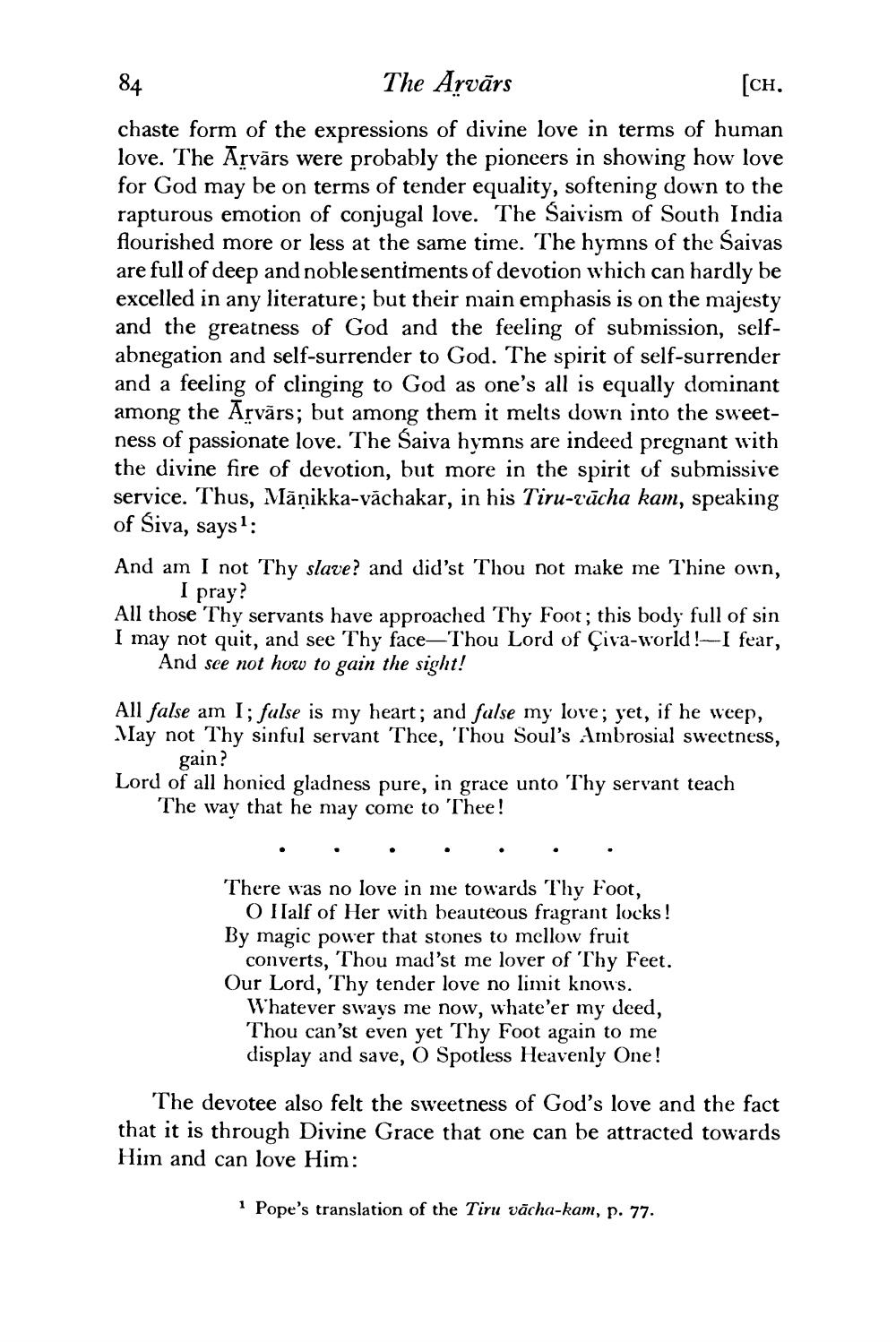________________
The Arvārs
[CH.
84
chaste form of the expressions of divine love in terms of human love. The Arvars were probably the pioneers in showing how love for God may be on terms of tender equality, softening down to the rapturous emotion of conjugal love. The Saivism of South India flourished more or less at the same time. The hymns of the Saivas are full of deep and noble sentiments of devotion which can hardly be excelled in any literature; but their main emphasis is on the majesty and the greatness of God and the feeling of submission, selfabnegation and self-surrender to God. The spirit of self-surrender and a feeling of clinging to God as one's all is equally dominant among the Arvars; but among them it melts down into the sweetness of passionate love. The Saiva hymns are indeed pregnant with the divine fire of devotion, but more in the spirit of submissive service. Thus, Māņikka-vachakar, in his Tiru-vācha kam, speaking of Siva, says1:
And am I not Thy slave? and did'st Thou not make me Thine own, I pray?
All those Thy servants have approached Thy Foot; this body full of sin I may not quit, and see Thy face-Thou Lord of Çiva-world!-I fear, And see not how to gain the sight!
All false am I; false is my heart; and false my love; yet, if he weep, May not Thy sinful servant Thee, Thou Soul's Ambrosial sweetness, gain?
Lord of all honied gladness pure, in grace unto Thy servant teach The way that he may come to Thee!
There was no love in me towards Thy Foot,
O Half of Her with beauteous fragrant locks! By magic power that stones to mellow fruit
converts, Thou mad'st me lover of Thy Feet. Our Lord, Thy tender love no limit knows.
Whatever sways me now, whate'er my deed, Thou can'st even yet Thy Foot again to me display and save, O Spotless Heavenly One!
The devotee also felt the sweetness of God's love and the fact that it is through Divine Grace that one can be attracted towards Him and can love Him:
1 Pope's translation of the Tiru vācha-kam, p. 77.




